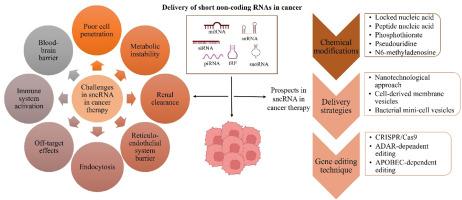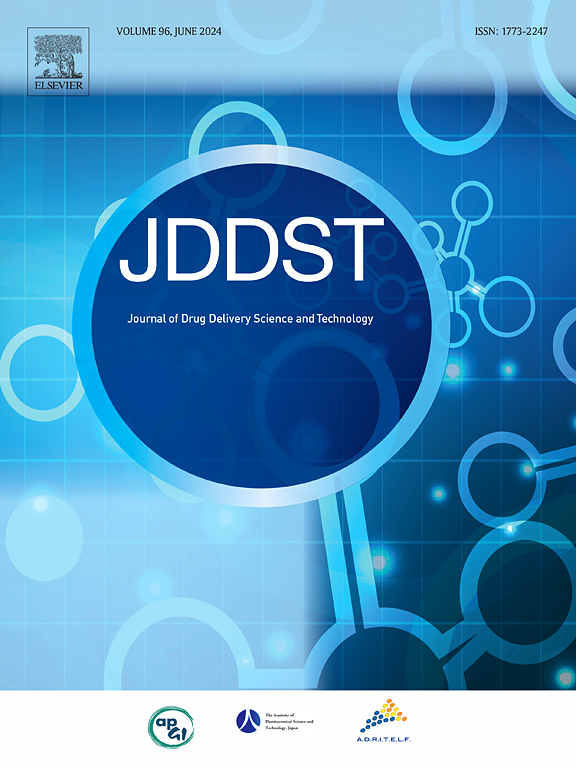Unveiling the challenges of short non-coding RNAs and their prospects in cancer therapy
IF 4.5
3区 医学
Q1 PHARMACOLOGY & PHARMACY
Journal of Drug Delivery Science and Technology
Pub Date : 2024-11-14
DOI:10.1016/j.jddst.2024.106411
引用次数: 0
Abstract
Short non-coding RNAs (sncRNAs) represent a burgeoning frontier in cancer therapeutics due to their exquisite gene regulatory abilities. These molecules hold immense potential for precisely targeting and manipulating gene expression in cancer cells. However, several key challenges limit their clinical application, effectively reducing sncRNAs function to specific targets within the body. This review delves into the emerging role of sncRNAs in gene regulation in cancer. We focus on the critical challenges linked with sncRNA, including ensuring their stability in circulation, minimizing off-target effects, optimizing tolerability within the patient, and facilitating efficient cellular uptake. In addressing significant research gaps, particularly the issues of stability, off-target effects, and the translational challenges from preclinical to clinical settings, this review highlights therapeutic strategies such as chemical modifications, novel delivery systems, gene editing techniques, and combination therapies with conventional treatments. By addressing these challenges and exploring these therapeutic strategies, sncRNA-based therapies hold the potential to significantly improve cancer treatment. Future research should focus on optimizing these strategies to translate preclinical findings into effective clinical applications.

揭示短非编码 RNA 的挑战及其在癌症治疗中的前景
短非编码 RNA(sncRNA)具有精湛的基因调控能力,是癌症治疗领域一个新兴的前沿领域。这些分子在精确靶向和操纵癌细胞中的基因表达方面潜力巨大。然而,一些关键的挑战限制了它们的临床应用,有效地降低了 sncRNA 在体内特定靶点的功能。本综述深入探讨了 sncRNA 在癌症基因调控中的新兴作用。我们重点关注与 sncRNA 相关的关键挑战,包括确保其在循环中的稳定性、最大限度地减少脱靶效应、优化患者的耐受性以及促进细胞的有效吸收。针对重大的研究空白,尤其是稳定性、脱靶效应以及从临床前到临床的转化难题,本综述重点介绍了化学修饰、新型递送系统、基因编辑技术以及与传统疗法相结合的治疗策略。通过应对这些挑战和探索这些治疗策略,基于 sncRNA 的疗法有望显著改善癌症治疗。未来的研究应侧重于优化这些策略,将临床前研究结果转化为有效的临床应用。
本文章由计算机程序翻译,如有差异,请以英文原文为准。
求助全文
约1分钟内获得全文
求助全文
来源期刊
CiteScore
8.00
自引率
8.00%
发文量
879
审稿时长
94 days
期刊介绍:
The Journal of Drug Delivery Science and Technology is an international journal devoted to drug delivery and pharmaceutical technology. The journal covers all innovative aspects of all pharmaceutical dosage forms and the most advanced research on controlled release, bioavailability and drug absorption, nanomedicines, gene delivery, tissue engineering, etc. Hot topics, related to manufacturing processes and quality control, are also welcomed.

 求助内容:
求助内容: 应助结果提醒方式:
应助结果提醒方式:


